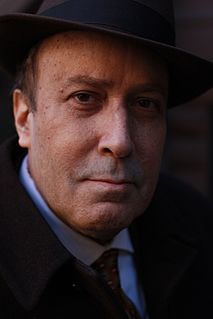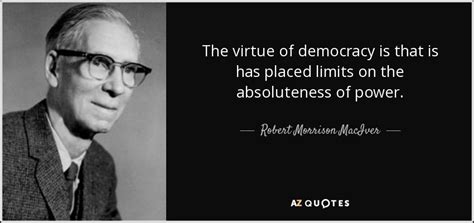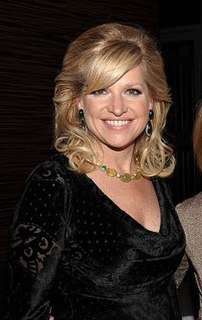A Quote by Harry Browne
If you ask the government to impose morality, then moral questions will be decided by whoever has the most political power.
Related Quotes
I declare that this government is no longer a constitutional and moral form of government. I will deal with it, and I will obey its laws, and I will support it when it is defending our country from foreign and domestic enemies. I will vote in its elections and participate in its political debates. But I will never accept it. I aim at a restoration of constitutional and moral order.
Whoever attentively considers the different departments of power must perceive, that, in a government in which they are separated from each other, the judiciary, from the nature of its functions, will always be the least dangerous to the political rights of the Constitution; because it will be least in a capacity to annoy or injure them.
Revealingly, the central function of the Constitution as law--the supreme law--was to impose limitations not on the behavior of ordinary citizens but on the federal government. The government, and those who ran it, were not placed outside the law, but expressly targeted by it. Indeed, the Bill of Rights is little more than a description of the lines that the most powerful political officials are barred from crossing, even if they have the power to do so and even when the majority of citizens might wish them to do so.
Talking about morality can be offensive. Morality is a politically incorrect subject. Many people are genuinely offended if someone speaks of morality and family values. It is okay if you talk about your sexual fantasies and deviances. This is called "liberation". But you would be frowned at if you talk about morality in public. Then you'd be accused of trying to impose your values on others.
We can assume that most people, most of the time, are moral creatures. But imagine that this morality is like a gearshift that at times gets pushed into neutral. When that happens, morality is disengaged. If the car happens to be on an incline, car and driver move precipitously downhill. It is then the nature of the circumstances that determines outcomes, not the driver's skills or intentions.




































